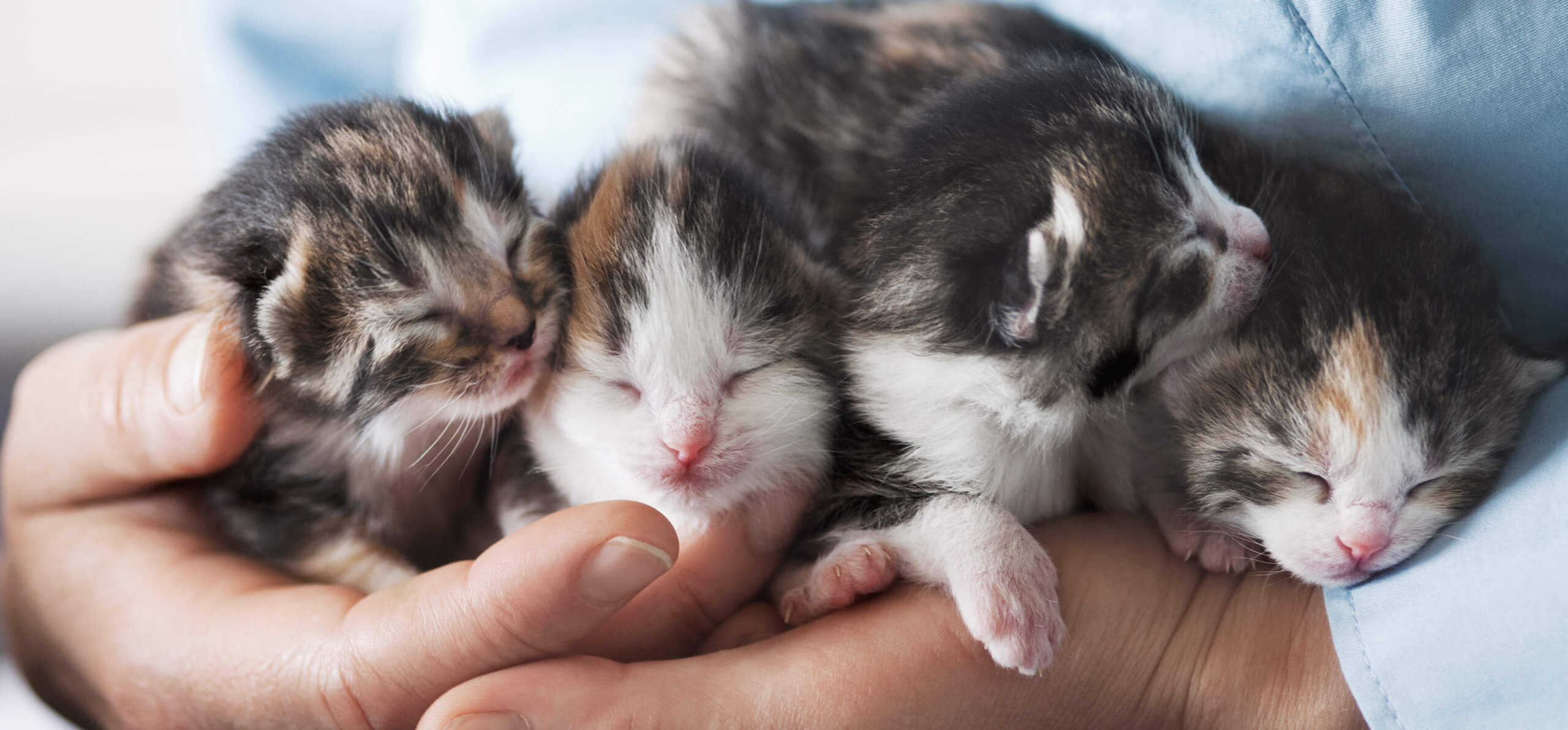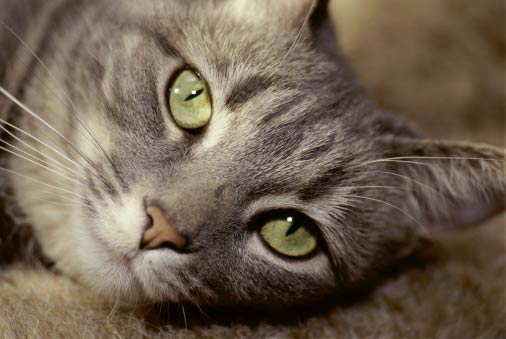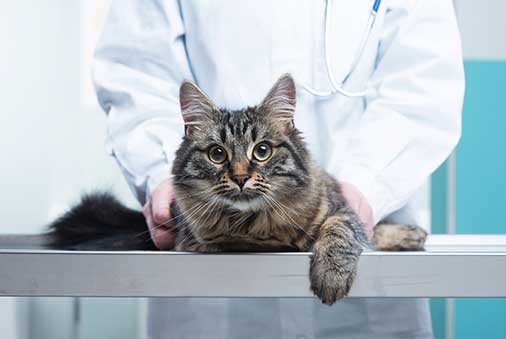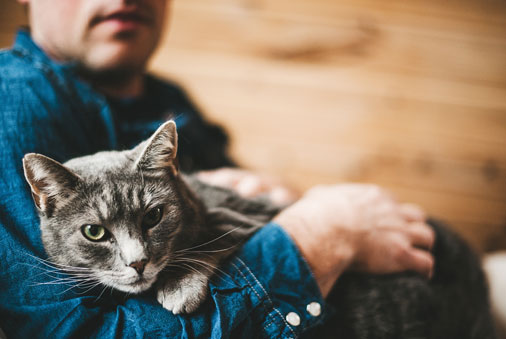Keeping your new kitten safe may feel like a challenge, but having a strong immune system will help her fend off common ailments that creep in as a normal part of growing up. Of course, you can’t protect her from everything, but you can watch for the following symptoms and contact your veterinarian as needed.
Upper Respiratory Concerns
Kittens are prone to upper respiratory infections, which are extremely contagious and often passed through the litter. Feline calicivirus and feline herpesvirus are the most common viral causes of respiratory problems, frequently present in shelters, with breeders and in multi-cat households.
Symptoms include sneezing, coughing, runny eyes, runny nose, lack of appetite and lethargy. While adult cats may carry the infection, symptoms are often the most severe in kittens. Treatment should be determined by your veterinarian and may include fluids, rest and antibiotics.
Intestinal Parasites
A whole host of unwanted parasites can make their way into your kitten’s intestines. Roundworms, hookworms and tapeworms (even some transmitted by fleas) are just a few that cause diarrhea and weight loss. Kittens contract worms by ingesting worm eggs, often from another feline’s fecal matter or from food that was in contact with infected soil.
Because kittens love to play by putting things in their mouths, it’s a common ailment. Your veterinarian will take a stool sample to identify which type of worm your kitten has contracted. There are numerous types and not all medication works the same for each. Beginning at eight weeks old, have your veterinarian deworm your kitten as needed to prevent clinical signs associated with infection, as well as further loss of fluid and weight.
Coccidia
Another intestinal parasite, coccidia, isn’t a worm, but it is transmitted through the ingestion of contaminated fecal matter. Symptoms include diarrhea, which leads to dehydration and lack of appetite. Because diarrhea is often common in young kittens, your veterinarian should examine your kitten’s stools to determine the right treatment. While no vaccine is available to protect against coccidia, it is treatable.
Giardia
Yet another intestinal parasite having symptoms consistent with others, giardia is transmitted through ingesting contaminated fecal matter. Giardia is also treatable with medication, so be sure to ask your veterinarian about testing for this internal parasite if your kitten has had any clinical signs.
Distemper
Feline distemper, also known as Feline Parleukopenia Virus (FPV) is dangerous because it attacks your kitten’s immune system. Transmitted via the fecal-oral route, even just a microscopic amount of contaminated stool can pass it on. Messy cat crates are the ideal breeding grounds for distemper. Fortunately, it’s a rare virus and vaccines are routinely given during your kitten's first round of shots.
If your kitten is vomiting, has a lack of appetite and a horrible, white, mucus-like diarrhea, bring her to the emergency veterinarian immediately so she can be tested for this virus, as well as be isolated and given antibiotics and fluids.
Feline Immunodeficiency Virus (FIV)
Cats infected with feline immunodeficiency virus (FIV) may not show symptoms until years after the initial infection starts. It’s a slow-acting virus, but once it takes hold, the feline’s immune system is severely weakened.
Once symptoms develop, however, they may progress for years or be interspersed with bouts of good health. If your kitten has any of the following symptoms, bring her to your veterinarian:
- Enlarged lymph nodes
- Fever
- Anemia
- Weight loss
- Disheveled coat
- Poor appetite
- Diarrhea
- Abnormal appearance or inflammation of the eye (conjunctivitis)
- Inflammation of the gums (gingivitis)
- Inflammation of the mouth (stomatitis)
- Dental disease
- Skin redness or hair loss
- Wounds that don’t heal
- Sneezing
- Eye or nose discharge
- Frequent urination, difficulty urinating, outside of the litter box accidents
- Change in behavior
Indoor cats are less likely to be infected because FIV is primarily transmitted cat to cat via deep bite wounds, which usually plague outdoor cats who fight a lot.
FIV isn’t commonly spread through food-bowl sharing or litter boxes, social grooming, sneezing, or other casual contact, but an infected mother can transmit the virus to her kitten. When adopting, check that your kitten’s mama has had a clean bill of health.
Feline Leukemia (FeLV)
Feline leukemia virus is highly transmittable and can severely inhibit your kitten’s immune system, predisposing her to a variety of infections and diseases, including anemia, kidney disease and lymphosarcoma cancer.
New kittens and cats less than a year old are most susceptible to the virus. Because symptoms aren’t always visible right away, any new cat entering a household—and any sick cat—should be tested for FeLV.
Some of the symptoms to watch for include:
- Loss of appetite, weight loss and lethargy
- Pale or inflamed gums
- Abcesses
- Fever
- Upper respiratory infections
- Diarrhea and vomiting
- Seizures
- Vision or other eye problems
- Enlarged lymph nodes
- Jaundice
Healthy kittens over three months of age who are vaccinated for FeLV aren’t likely to contract the virus from other cats. Keeping your kitten inside, away from stray cats whose FeLV status isn’t known, is the best way to prevent her from being infected.
If you suspect something is wrong with your new kitten, don't hesitate to take her to the veterinarian. All new pet parents have a tendency to over-worry, but when something seems off, it’s better to be safe and call your veterinarian.
Good pet parenting starts with regular veterinary care, so you can look forward to a lifetime of companionship with your adorable, growing kitten.





